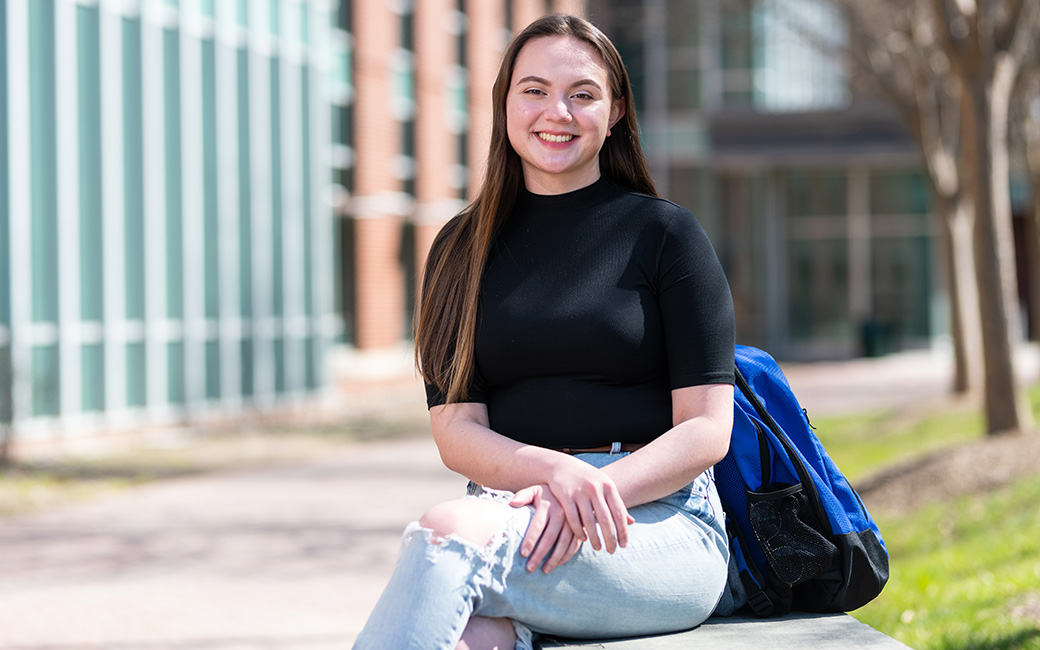A historical perspective
Taryn Painter makes finding internships in new history minor a major priority.

When Honors College student Taryn Painter enrolled in the human rights and history minor, she soon found herself with a major commitment.
The minor in the history department, new in 2019, explores racism, genocide and forced migration among other topics, and requires students to complete an internship their senior year.
Working with Kimberly Katz, professor of history, Painter is responsible for identifying organizations that may offer internships to show TU students how they can improve situations of everyday inequality.
“I’ve found internship opportunities dealing with migration and refugees, environment, food, water and health care equity, trafficking and domestic and child abuse,” says Painter, a history and political science major. Most are located in Baltimore and Washington, D.C. But in the wake of COVID-19, she’s expanded her search to other states and organizations that will offer the chance to work remotely.
Painter, the spring 2020 recipient of the Mary Catherine Kahl History Prize, is focused on refugee and immigration policy analysis, an interest sharpened at home. Her mother emigrated to the United States from Vietnam in 1994. “While my mother doesn’t talk often about her experience, I know the family separation was rough,” says Painter, explaining it took years before her mother and siblings were reunited.
“ I’ve found internship opportunities dealing with migration and refugees, environment, food and health, trafficking and domestic and child abuse. ”
Painter explored similar issues in Contemporary International Relations, a class taught by Alison McCartney, professor of political science. As a member of Russian Humanitarian Emergencies and Migration, Painter prepared a policy on Internally Displaced Persons — those who flee their homes but remain in a country’s borders — arguing for the creation of staging areas and an international conference.
Painter also works in the Office of the Provost and is a volunteer tutor with the America Counts/Reading Partners program. At elementary schools in Baltimore City, she helped students with reading proficiency. “Week by week, I saw the kids improve,” she says. “They stumbled less, stopped at the end of a period and knew vowel sounds.”
She adds, “I hope I showed them learning can be fun even if it is challenging.”